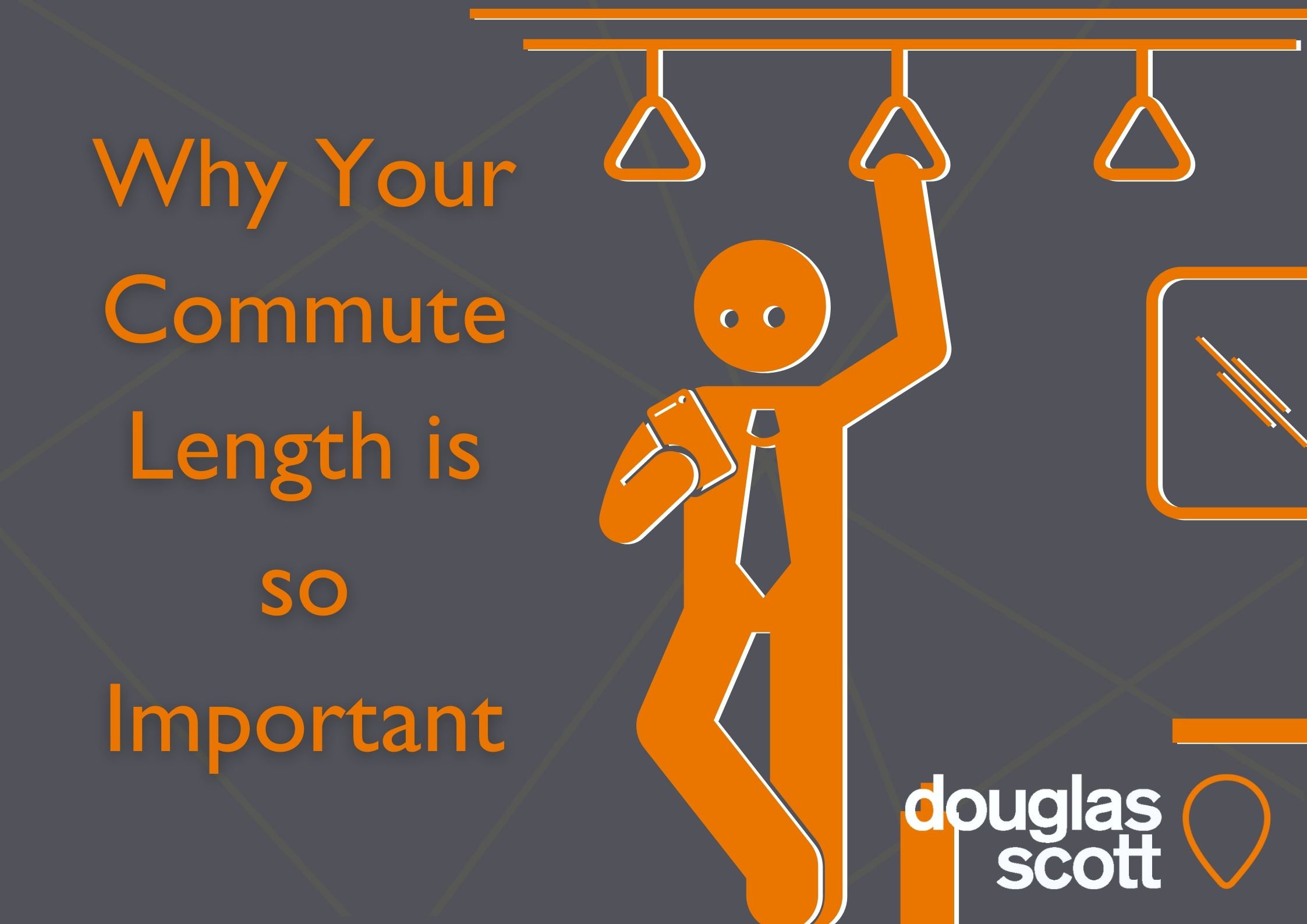Why Your Commute Length is so Important
Posted in Latest News on 10 Aug 2023

At Douglas Scott, we conduct an yearly salary survey to discover what is going on in the market, and what factors are influencing people to move roles. These statistics cover a wide range of topics – one of which is commuting times.
The length of someone’s commute has a huge influence on factors such as job satisfaction and desire to move. If your commute is too long, it could be a major factor in deciding whether or not you wish to find a new position. So, what do these commuting times tell us about what is going on in the legal market? We wanted to find out.
Across all responding departments, the commuting time was, on average between 29 and 54 minutes. 39 minutes was the average response for 3 different sectors (South East & Home Counties, Midlands & Eastern England, and Yorkshire & North East), making it the most common across sectors, with even the North West coming in relative close on 41%. The major outlier in all this data is London, with the highest commuting time of 54 minutes. What’s particularly interesting about this statistic is that 27% of professionals surveyed in this region were also looking to move roles within the next 6 months.
While we can’t necessarily draw too much of a correlation between the two, it is interesting that the region with the highest commuting times also has the highest percentage of people wishing to make a move. In terms of career motivators, the commute doesn’t factor in too much in people’s desires to move in London, however, so it may not be a conscious desire to change.
The commute has, traditionally been seen as a stressful experience. After all, you’re fighting to get on a packed train, there’s not enough seats and then you end up being late because there’s been a delay further up the line. In fact, a study published in 2017 by the University of the West of England actually detects a link between the greater number of minutes spent commuting, and reduced job satisfaction and wellbeing. In many ways, the pandemic has helped to offset some of this: with hybrid and flexible working now much more the norm, satisfaction levels may have somewhat changed. However, there are those who believe the commute is good for you, if viewed in the right context. An article published by the Harvard Business Review recontextualises some aspects of commuting as beneficial to people. It can act as a way to switch off from working, and to be able to enjoy a little bit of downtime between your ‘working self’ and your ‘home self’. It could also help act as a chance to prepare: whether it be for a big meeting or presentation, or even just the regular day’s work. You could even use it to learn new skills which might look good on your CV, like learning a new language or listening to podcasts about new developments in your market. So, there are ways to make the commute work for you, but it depends on the journey, and how reliable the transport is!
The length of your journey to and from work can be seen as a defining factor for some in whether they take a role on or not. For some, the commute might be seen as a dreaded part of the work day – while, for others, it is a great opportunity to get themselves in the right place for the day ahead. Regardless of your view of it, our 2023 salary survey does demonstrate that, in comparison to the national average commute time of 59 minutes (according to a study conducted by trade union the TUC), the legal sector has, generally, a shorter commute than other jobs. As such, there might be a greater sense that a better work/life balance is being struck in law than in other sectors of the economy.
Latest insight
-
Criminal solicitors – Are they the unhappiest legal sector?
18 Jun 2025 -
What motivates Employment solicitors to leave their roles?
03 Jun 2025 -
How happy are Residential Conveyancers?
29 May 2025 -
Is the Private Client market a static one?
28 May 2025 -
What can law firms do to protect mental health?
20 May 2025